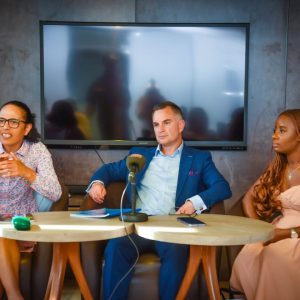One of the biggest reasons why many people, especially in Africa will never attain true financial freedom is because they’re carrying loads they were never meant to bear. Heavy responsibilities they inherited out of guilt, obligation, or emotional manipulation. Most times, it’s not even out of love, its survival culture cloaked as family loyalty.
You’re a young man or woman in your 20s or 30s, just beginning to make some money. Maybe it’s your first job, your first major contract, or you’re earning ₦300k–₦500k monthly. It’s not a fortune for real , but it’s more than anyone else in your family has ever earned, and now you’ve suddenly become “the savior.”
You have siblings who are able-bodied adults, living in your house, eating your food, and waiting for you to feed and clothe them. Not because they can’t fend for themselves, but because you’ve made it too easy for them not to try, after all you’re the one with “something.”

Your parents are still able-bodied, yet all they do is call you constantly for money, with no consideration for whether you can even afford what they’re asking for.
You go to work every day. You earn ₦500,000 a month, but it’s gone in a matter of days because you’ve taken on more than you can realistically handle. You have no savings, no investments, no emergency fund, no retirement plan. Nothing except pressure, anxiety, and silent resentment.
And sadly, the moment something happens, maybe you lose your job, fall ill, or just hit a rough patch, they will move on because life won’t stop. You will then quickly realize that you were never the pillar; you were just the current option.
We often romanticize suffering in Africa. We glorify struggle, endurance, and unnecessary sacrifice. We guilt people, especially the first to “make it” into becoming banks and saviors, even when they’re still trying to figure out life themselves.
The truth is, a certain level of selfishness is necessary, especially as a young person just starting to build financial stability. One of the reasons we remain trapped in cycles of poverty in Africa is this culture of burdening the most financially visible member of the family.
Let me be clear, I’m not saying you shouldn’t support your family. Please do, but with boundaries. Set a budget for what you can give, based on your capacity. And no, they don’t need to know exactly how much you earn. That’s not transparency, it’s unnecessary exposure because information becomes expectation, and expectation becomes entitlement. And entitlement is a dangerous beast to feed.
We’ve all read the story of a young man earning over a million naira monthly who took it upon himself to cater for the entire family. The moment tragedy struck and he lost his job, not a single person stepped in to help. In fact, when he asked for a loan from a relative, he was told, “You should have saved when you had money.”
If God has elevated you financially and you’re in a place of true abundance, please, lift others. That’s kingdom stewardship. But if you’re still building, still laying foundation blocks, still hustling your way to stability, then wisdom must guide your generosity.
Let’s be honest: some of our cultural values are toxic. This idea that the first person to make money must automatically become the family breadwinner is part of why generational wealth doesn’t happen in many African homes. Instead of empowering the next person, we drain the one who “has.” It’s not community. It’s cannibalism in disguise.
Help people strategically. If your sibling needs help, ask them to find a skill, and offer to pay for the training, not just to feed them forever. If your parents are idle, encourage them to do small-scale business, no matter how simple. Empowering your people is the best thing to do, don’t enslave yourself to them. Because one day, when you’re not there, they will still find a way to survive.
If you die today, your siblings will find new places to live. Your parents will cry, yes, but they will still eat, still go to church, still attend weddings and owambes. Life will go on.
So while you’re alive, choose yourself too. Build your own stability before you carry others. Because if you crumble, there’s no guarantee they’ll catch you.
As the Yoruba proverb wisely says:
“A ri e la pè e, ta ba ri e, a pè elòmí.”
“We call you because we see you. But if we don’t, we’ll call someone else.”
Let that sink in.
Stay ahead with the latest updates!
Join The Podium Media on WhatsApp for real-time news alerts, breaking stories, and exclusive content delivered straight to your phone. Don’t miss a headline — subscribe now!
Chat with Us on WhatsApp






